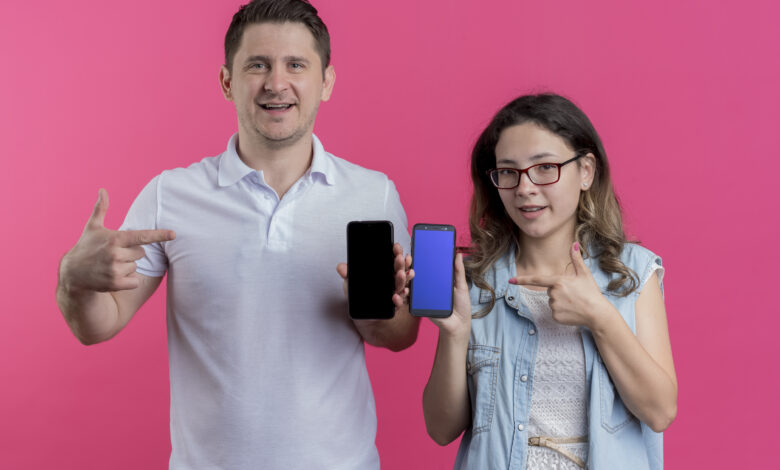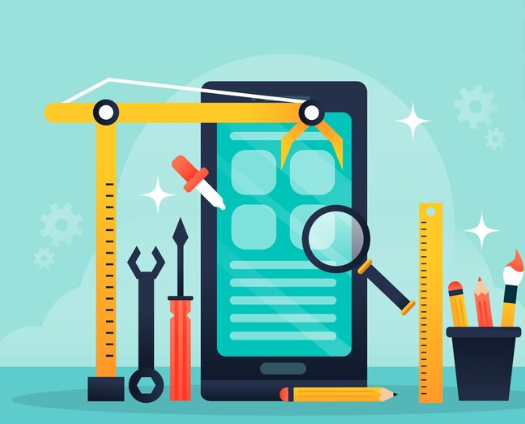iPhone vs Android in 2025: Which One Should You Buy?

Title: iPhone vs Android in 2025: Which One Should You Buy?
In the ever-evolving world of smartphones, the rivalry between iPhone and Android continues to dominate headlines. As we move deeper into 2025, the competition has become fiercer, with both Apple and Android manufacturers pushing boundaries in innovation, design, and performance. But the big question remains: iPhone vs Android in 2025 – which one should you buy?
This in-depth comparison will break down everything you need to know about the two platforms, helping you make an informed choice based on your needs, preferences, and budget.
1. Operating System and User Experience
iPhone (iOS 19)
iOS 19 brings a refined user interface with enhanced customization, improved Siri integration through generative AI, and superior app optimization. Apple continues to offer a smooth, consistent experience across devices, with a strong focus on privacy and security.
Android (Android 15 and Skins)
Android 15 has brought massive improvements in speed and multitasking. Skins like Samsung’s One UI 7.0, OxygenOS 14, and Google’s Pixel UI offer various flavors of the Android experience. Customization remains Android’s biggest strength, letting users tailor their interface and widgets to their liking.
Verdict: iPhone wins for consistency and simplicity; Android wins for flexibility and personalization.
2. Design and Build Quality
iPhone 15 Pro / Pro Max
Apple’s flagship devices in 2025 feature a titanium body, slimmer bezels, and a new haptic volume control. The design remains minimalist and premium.
Android Flagships (Samsung Galaxy S25 Ultra, Google Pixel 9 Pro, OnePlus 13)
Android phones now offer more experimental and bold designs – curved screens, under-display cameras, and foldables. Brands like Samsung lead the way in foldable tech, while others innovate in texture, form factor, and color.
Verdict: iPhone excels in premium feel; Android excels in variety and innovation.
3. Camera Technology
iPhone
The iPhone 15 Pro Max features a 48MP main sensor with deep integration of AI photography. Cinematic Mode 2.0 and Smart HDR 6 take mobile videography to new heights.
Android
Samsung’s 200MP sensor in the Galaxy S25 Ultra, Google’s computational photography on the Pixel 9 Pro, and OnePlus’s Hasselblad tuning make Android a leader in camera innovation. Periscope zoom and variable aperture tech give Android phones more hardware versatility.
Verdict: iPhone offers consistent photo/video quality; Android offers more hardware capabilities and experimental features.
4. Performance and Hardware
iPhone
The A19 Bionic chip is a powerhouse, leading in CPU and GPU benchmarks. Combined with tight hardware-software integration, the iPhone excels in gaming, AR, and multitasking.
Android
Qualcomm’s Snapdragon 8 Gen 4 and Google’s Tensor G4 provide massive leaps in AI performance and power efficiency. Android flagships now include up to 18GB RAM and 1TB storage.
Verdict: iPhone leads in performance efficiency; Android offers more powerful raw specs in some models.
5. Battery Life and Charging
iPhone
Apple has improved battery life across the board and introduced 40W wired and 25W MagSafe wireless charging. Battery health monitoring tools are now native to iOS.
Android
Android phones offer faster charging (up to 100W on some models) and larger batteries. Some even support reverse wireless charging.
Verdict: Android wins on charging speed and capacity; iPhone wins on battery longevity and optimization.
6. App Ecosystem and Software Support
iPhone
App quality on iOS remains higher, thanks to stricter App Store regulations. Apple provides 5–6 years of major iOS updates.
Android
The Play Store has more apps, but quality can vary. Brands like Samsung and Google now offer 5+ years of software support, closing the gap with Apple.
Verdict: iPhone still wins in app quality and long-term support.
7. Security and Privacy
iPhone
Apple’s focus on privacy remains unmatched, with features like Mail Privacy Protection, App Tracking Transparency, and on-device processing for Siri and photos.
Android
Android 15 has improved privacy controls, including isolated profiles and real-time permission tracking. However, some Android skins may include bloatware or trackers.
Verdict: iPhone wins in built-in privacy; Android offers more user control.
8. Price and Value
iPhone
Premium pricing continues with the base iPhone 15 starting at $999. Resale value remains strong, and software support makes older models relevant for years.
Android
Android offers more diversity in pricing—from budget models to foldables above $1,800. You can find a great phone for nearly every budget.
Verdict: Android wins in pricing flexibility; iPhone wins in long-term value.
9. Ecosystem and Device Integration
iPhone
Apple’s ecosystem is unparalleled—iMessage, AirDrop, Apple Watch, AirPods, and Continuity features between iPhone, Mac, and iPad create a seamless experience.
Android
Google’s ecosystem is growing, especially with Pixel devices and Wear OS. Samsung’s ecosystem (SmartThings, DeX) also shines in Android’s world.
Verdict: iPhone wins for seamless ecosystem; Android offers more third-party integration and freedom.
10. Innovation and Future Potential
iPhone
Apple is focusing on AR, spatial video, and deeper AI integration. The rumored Apple Vision Pro synergy may create new dimensions in productivity and entertainment.
Android
Android leads in foldables, under-display cameras, and open AI integration. Its flexibility means it will always be first to experiment.
Verdict: Android leads in hardware innovation; Apple leads in user-focused tech integration.
Final Verdict: Which One Should You Buy in 2025?
The choice between iPhone and Android in 2025 depends entirely on your preferences:
- Choose iPhone if: You value long-term support, security, consistent performance, and a seamless ecosystem.
- Choose Android if: You crave customization, bleeding-edge hardware, wider price options, and faster innovation cycles.
Both platforms are incredibly advanced in 2025. There is no wrong choice—only the better fit for you.
FAQs
Q1: Is the iPhone worth it in 2025?
Yes, if you prioritize security, long-term updates, and high resale value.
Q2: Which Android phone is best in 2025?
Top picks include the Samsung Galaxy S25 Ultra, Google Pixel 9 Pro, and OnePlus 13.
Q3: Do Android phones still lag compared to iPhones?
Not anymore. Android flagships now match or exceed iPhones in speed and responsiveness.
Q4: Which platform is better for gaming?
iPhone offers better optimization, while Android provides better hardware options.
Q5: What about software updates?
iPhones lead in update longevity, but Android brands are catching up fast.
Would you like a featured image or a social media caption to go with this article?



